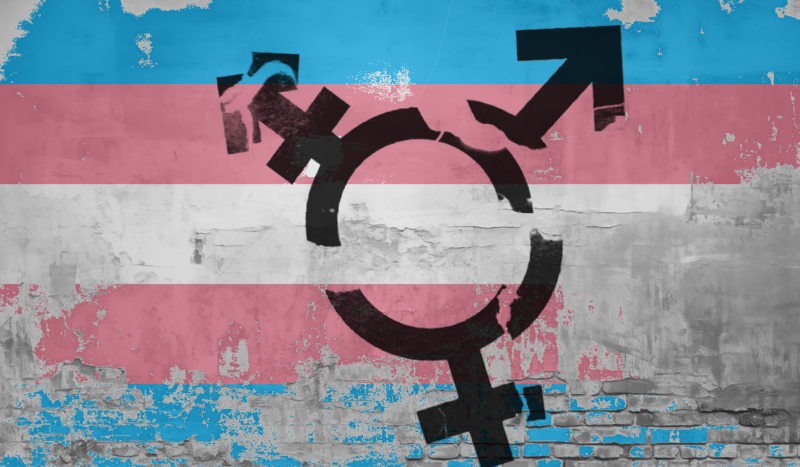
A report released Wednesday by the American College of Pediatricians (ACPeds) states that so-called “gender-affirming care” provides “no demonstrable, long-term benefit” for the mental health and well-being of adolescents who claim a gender identity incongruent with their true sex.
The report, the result of a review of over 60 studies, found “no long-term evidence” that “social transition, puberty blockers, and cross-sex hormones” offer improvement in the mental health of these young people.
The ACPeds researchers observe that adolescents with gender dysphoria exhibit mental health concerns such as depression and suicidal ideation both before and after transgender social and medical intervention.
“Previous adverse childhood experiences may play a major role in that psychopathology and needs to be explored in helping these patients,” the report stresses.
“We urge medical professionals and parents to affirm the truth about childhood gender dysphoria in the presence of harmful thoughts and address the underlying mental illness, adverse events, and family dysfunction,” the study’s lead author Dr. Jane Anderson, vice president of ACPeds, said in a press release summarizing the group’s position statement.
The “adverse events” experienced by adolescents who claim another gender identity often include child abuse. The pediatricians note that “over half of LGBTQ+ sexual minorities” experience child abuse of various types, “with transgender youth reporting more abuse and neglect than other sexual minorities.”
“As the proportion of adolescents who identify as heterosexual decreases, the incidence of mental health issues increases,” including depression and suicidal ideation, the researchers say, citing numerous studies that show “[p]sychiatric disorders commonly precede gender incongruence.”
Anderson et al emphasize the seriousness of this outcome in light of data from the Centers for Disease Control and Prevention’s (CDC) Youth Risk Behavior Surveillance Survey (YRBSS). The YRBBSS found 11% of adolescents described themselves as gay, bisexual, or not sure of their sexuality in 2015. By 2021, that percentage had more than doubled to nearly 25%.
The pediatricians also point to a review of data from an earlier YRBSS published in March 2020 at Pediatrics, the flagship journal of the American Academy of Pediatrics (AAP). The review found that between 2009 and 2017, adolescents describing themselves as being of minority sexual orientation nearly doubled, from 7.3% to 14.3%.
Additionally, students identifying as sexual minorities “remained >3 times likely to attempt suicide relative to heterosexual students in 2017.”
“Sexual minority adolescents accounted for an increasing proportion of all adolescent suicide attempts,” researchers Raifman et al observed.
The ACPeds researchers note that “[i]n that 8-year time period, as the percentage of sexual minority adolescents almost doubled, the proportion of suicide attempts in that population increased from 24.6 % to 35.6%, indicating that these youth are at greater risk for mental health concerns.”
A review of data from the 2015-2017 Healthy Minds Study also revealed 78% of “gender minorities” (GM) were found to have mental health concerns, compared with 45% of those not identifying with that group.
“Twice as many GM students (58%) screened positive for depression compared with 28% of ‘cisgender’ students,” Anderson et al observe. “The authors found that ‘GM status was associated with 4.3 times higher odds of having at least one mental health problem.’”
The ACPeds researchers report as well data that point to an “increased incidence of autism spectrum disorder (ASD) among individuals with sex/gender-identity incongruence.”
“Using five independent cross-sectional datasets consisting of 641,860 individuals, researchers found ‘transgender and gender-diverse individuals have, on average, higher rates of autism, other neurodevelopmental and psychiatric diagnoses,’” they write.
Additional “factsheet” items from the ACPeds review include:
- Research casts doubt on claims that social affirmation (like using desired pronouns) of transgender-identified youth helps their long-term psychosocial well-being.
- Blocking puberty also has not produced significant benefits for gender incongruent youth according to in-depth systematic reviews.
- Studies from multiple countries indicate cross-sex hormonal interventions result in little mental health benefit. Furthermore, these chemical interventions were associated with greater use of psychiatric services than patients who were not treated with hormones.
- Gender-dysphoric youth need to have mental illness, adverse childhood events, and family dysfunction dealt with, and need the reassurance to embrace their biological sex as their gender identity and to avoid the harmful consequences of “transgender-affirming” interventions.
ACPeds affirms as “medical fact” that “the sex of an individual is based upon biology and not upon thoughts or feelings”:
The individual’s sex is encrypted in every diploid cell of the body. Since an individual’s biological sex is immutable from the moment of fertilization, it cannot be changed, regardless of hormonal or surgical interventions. Nothing in this paper should be construed to mean the College agrees with or accepts that individuals can change their given biological sex. The so-called “transition” is not a change of sex or even a change of sexual/gender identity, but rather only a change in sexual appearance or presentation.
The pediatricians affirm that many adolescents who have undergone so-called “gender-affirming” therapy, hormonal and/or surgical, “later embraced their biological sex as their gender.”
“These youth need support as they often deal with significant harm from their previous medically sanctioned interventions that led to disfigurement and possible sterilization,” ACPeds warns, expressing its concern that
parents, along with health care and educational professionals, who support the transgender “transition” of children and adolescents are, in fact, contributing to increased depression by appearing to validate to the children that “something is wrong with their body and biological sex.”
“The studies reviewed in this paper demonstrate what many who practice medicine intuitively understand,” said Dr. Michael Artigues, president of ACPeds:
that young patients experiencing gender dysphoria deserve help in accepting and loving themselves as they are, not interventions that destroy their healthy bodies and put them on track of medicalization for life.

